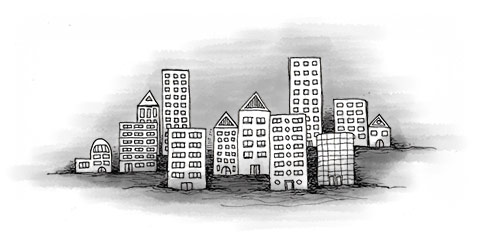Properties for rent are advertised in local newspapers and magazines (where you can also place a ‘wanted’ ad.), particularly in English-language publications. They can also be found through property publications in many other countries.
Estate agents in Portugal often offer both short and long-term rentals, and developers may also rent properties to potential buyers. A rental contract ( contrato de arrendamento) is necessary when renting a property in Portugal, whether long or short-term.
Long-term Rentals
Portugal doesn’t have a flourishing long-term (i.e. six months or longer) rental market in resort areas, where it’s more common for people to buy, although there’s an adequate choice of long-term rentals in most regions, including everything from studio apartments to luxurious villas with private swimming pools.
Most properties in resort areas are let furnished ( mobiliado), whether long or short-term, and long-term unfurnished ( desmobiliado, sem mobília) properties are difficult to find. On the other hand, in major cities long-term rentals are usually let unfurnished and furnished properties are difficult to find.
Rental costs vary considerably according to the size (number of bedrooms) and quality of a property, its age and the facilities provided. However, the most significant factor affecting rents is the region, the city or town, and the particular neighbourhood.
Long-term rentals are good value in resort areas outside the main summer season (when they’re rare), where it’s possible to rent a property for the entire winter season.
Rentals of one year or longer are difficult to find in the Algarve and are generally very expensive. In major cities, rents are high (in relation to salaries) and contracts are commonly for one year and renewable by mutual agreement between the landlord and tenant.
Portuguese law is heavily weighted in favour of tenants and this acts as a deterrent to landlords who fear being unable to get rid of a tenant when a contract terminates. Long-term rentals don’t usually include utilities such as gas and electricity (or heating).
Short-term Rentals
Short-term rentals are always furnished and are usually for holiday lets of a few weeks or months. A short-term or temporary contract is necessary, which provides tenants with less rights than a long-term contract. There’s an abundance of self-catering properties for rent in Portugal, including apartments, cottages, farmhouses, townhouses and villas.
Rents for short-term rentals are much higher than for longer lets, particularly in popular holiday areas where many properties are let as self-catering holiday accommodation. However, many agents let self-catering properties in resort areas at a considerable reduction during the ‘low’ season, which may extend from October to April.
The rent for an average one or two bedroom furnished apartment or townhouse during the low season is usually from €600 to €900 per month for a minimum one or two month let. Rent is usually paid one month in advance with one month’s rent as a deposit. Lets of less than a month are more expensive, e.g. €300 to €450 per week for a two-bedroom apartment in the low season, which is some 50 per cent of the rent levied in the high season.
Many hotels and hostels also offer special low rates for long stays during the low season. Note, however, that when the rental period includes the peak letting months of July and August, the rent can be prohibitively high (the Algarve is one of Europe’s most expensive regions in which to rent a summer holiday home).
Standards vary considerably, from dilapidated ill-equipped apartments to luxury villas with every modern convenience. Check whether a property is fully equipped (which should mean whatever you want it to mean) and whether it has heating if you’re planning to rent in winter. Rentals can be found by contacting owners advertising in publications and through estate agents in most areas of Portugal, many of whom also handle short-term lets.


